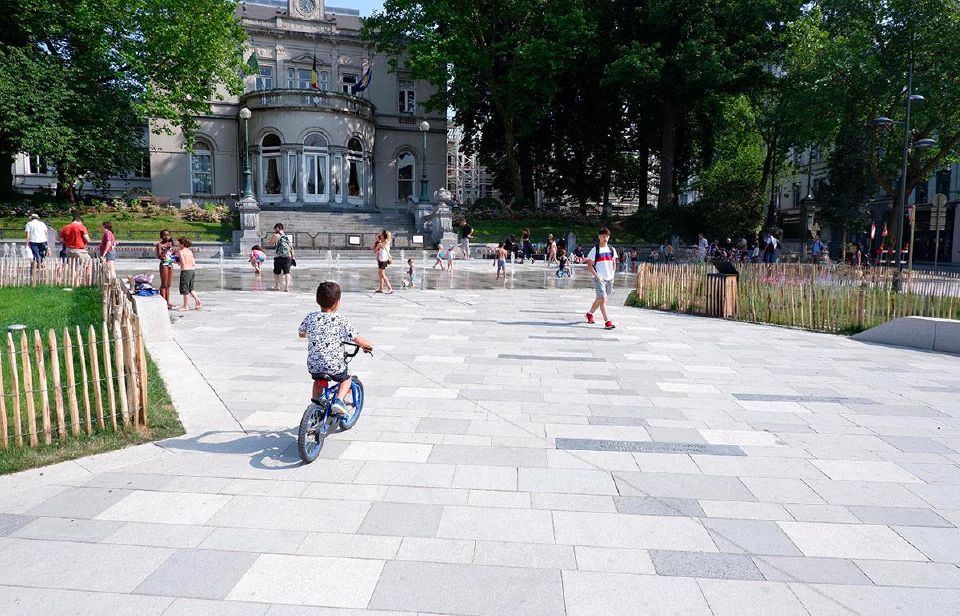Brussels speeds up its policy to give a human dimension to the public space
The Brussels Government approved a number of measures to create quality public spaces for residents in the short term.
The Brussels Government approved a number of measures to create quality public spaces for residents in the short term.
On the initiative of Secretary of State for Urbanism and Heritage Pascal Smet, the Brussels government has approved to launch the procedure to protect various parts of the St-Gilles prison. This procedure is an important step towards the future reconversion of the entire prison site.
"During this coronavirus crisis, many Brussels residents have understood the importance of public space," explains Pascal Smet, Secretary of State for Urban Planning. "We now collectively realize that public space in the city is much more than just a place to move around. The city is also a place that must be pleasant to relax in. A place where you can meet, play and do sports. That is why we must seize the moment to speed up the roll-out of our urban planning policy. We are also using this moment to prepare the city for other challenges that lie ahead, such as climate challenges, for example. This is why we are focusing on the greening of public space, to allow better water penetration into the soil or to facilitate and increase the planting of trees and shrubs. » The majority agreement of the Brussels government includes clear intentions to make the city more livable for its inhabitants and to give it the weapons to face the climate challenges. With the prospect of a summer where many Brussels residents will remain in their region, work must be accelerated to turn intentions into action.
The majority agreement of the Brussels government includes clear intentions to make the city more livable for its inhabitants and to give it the weapons to face the climate challenges. With the prospect of a summer where many Brussels residents will remain in their region, work must be accelerated to turn intentions into action.
Many Brussels residents live in a small space, with little or no outside space such as a terrace or garden. The need for accessible public spaces is enormous, especially when many leisure activities can no longer take place, as is the case today.
Several initiatives have already been launched. Certain streets and squares have been closed off for traffic and some terraces have been extended. This temporary space will give residents more breathing room in the city. However, these initiatives are very scattered and are often very technical. Some of them do not correspond to the urban planning objectives such as the creation of quality leisure areas, greening or soil permeability. And therefore they will probably not last. It is necessary to develop a coordinated and ambitious approach that will show results in the near future.
The Region will therefore now take the initiative to ensure that they are sustainable in a coordinated, effective and qualitative manner. Soil permeabilization (replacing asphalt or concrete with soil) and the planting of trees and shrubs are essential elements in the reorientation of public space. For this reason, no more permits will be issued for projects that are not at the same time qualitative, that make mobility more sustainable and safe and that imply a net greening.
The Region is reaching out to the municipalities to harmonize these interventions in the public space. Each intervention, whether temporary or definitive, will have to be carried out in close collaboration with urban.brussels, the regional urban planning administration. The administration will monitor the evolution of public space throughout the Brussels Region and will have a coordinating and facilitating role.
We are also examining the possibility of radically facilitating procedures for a number of low-impact urban planning interventions in public space.
A context will be created to speed up specific interventions in the future such as the softening of parking spaces, the widening of footpaths, the securing of cycle paths or the creation of planting compartments for shrubs and trees. These interventions can then take place without going through time-consuming procedures, but under strict conditions and after approval by urban.brussels.


